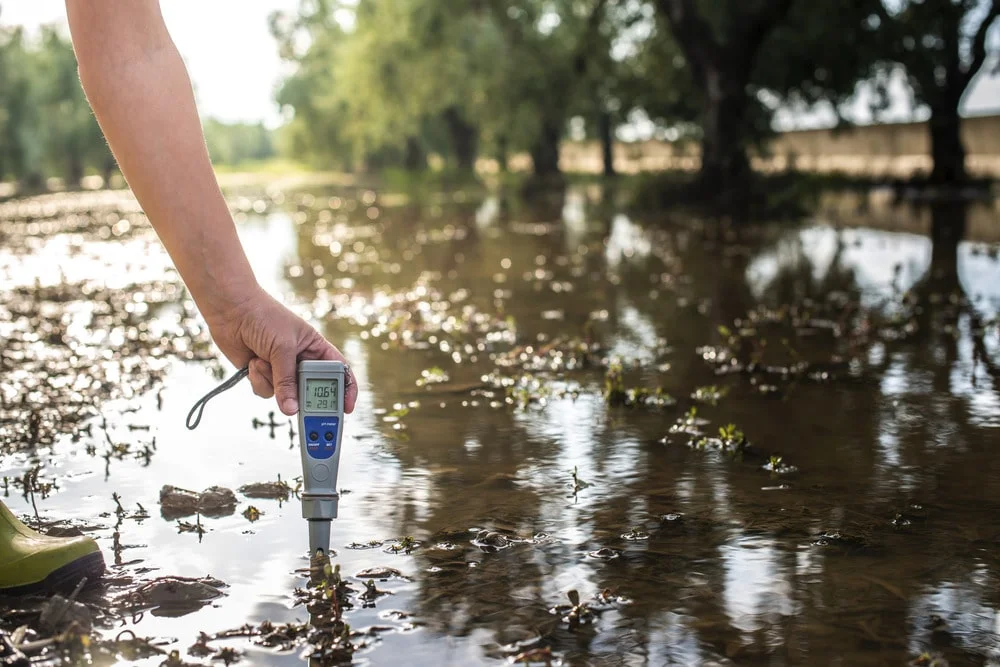Water is crucial for everyday living, but do you know from where your tap water originates? Chattanooga’s water supply is mostly derived from the Tennessee River and subterranean aquifers. The quality of this water affects both your health and the lifetime of your plumbing system. If you’ve ever noticed stains in your sinks, fluctuating water pressure, or pipe leaks, Chattanooga water quality might be the cause.
What Is the Water Quality in Chattanooga?

Chattanooga's Water Sources
Chattanooga’s principal water sources are the Tennessee River and the Citico Creek Aquifer. These sources are treated by municipal water facilities before they reach homes and businesses. While many pollutants are removed during treatment, some minerals and contaminants can still impair the flavor, smell, and plumbing performance of the water.
Smelly drains? Poor water quality may leave residue that breeds bacteria. Test your water, flush pipes regularly, and use enzyme cleaners for lasting freshness.
Common Contaminants in Chattanooga's Water
Even after treatment, Chattanooga’s tap water may include trace quantities of chlorine, lead, and industrial contaminants. In certain places, water hardness in Tennessee is a big issue, causing mineral accumulation in pipes and appliances. Furthermore, stormwater runoff can include silt and organic compounds, resulting in temporary cloudiness or strange aromas in tap water.
Chattanooga Hard Water Levels by Zip Code
Understanding Water Hardness
Water hardness is the concentration of calcium as well as magnesium minerals. It is quantified in parts per million (PPM) or grains per gallon (GPG).
- Soft water: 0-60 PPM (0-3.5 GPG)
- Moderately hard water: 61-120 PPM (3.5-7 GPG)
- Hard water: 121-180 PPM (7-10.5 GPG)
- Very hard water: Over 180 PPM (10.5+ GPG)
When compared to national norms, Chattanooga’s waterfalls water is fairly hard. As a result, many households face hard water effects on plumbing, such as limescale accumulation and lower performance of water heaters and other equipment.
Water Hardness Levels in Key Chattanooga Zip Codes
Hard water levels might vary depending on the region. Here’s the broad breakdown:
- 37421 (East Brainerd)– Hard water (140-160 PPM)
- 37405 (North Chattanooga)– Moderately hard (100-120 PPM)
- 37412 (East Ridge)– Hard water (130-150 PPM)
- 37343 (Hixson)– Very hard water (180+ PPM)
If you reside in one of these places, investing in water treatment systems can help safeguard your home’s plumbing system.
How Chattanooga's Water Quality Affects Your Plumbing
Hard Water and Scale Buildup
One of the most serious plumbing difficulties in Chattanooga is scale accumulation produced by hard water. Calcium and magnesium collect within pipes and appliances, forming a thick, chalky film. Over time, this lowers water flow, damages water heaters, and shortens the life of dishwashers and washing machines.
Water Pressure Issues and Clogged Pipes
Mineral deposits from hard water can restrict pipes, resulting in lower water pressure. In extreme circumstances, clogs might form, necessitating expert drain cleaning or pipe replacement. If you experience fluctuating water pressure, plumbing in Chattanooga may require descaling or a water-softening system.
Pipe Corrosion and Leaks
Hard water is more than simply deposits; it may cause pipe corrosion from hard water. Minerals react with metal pipes, making them weaker over time. Corroded pipes are more likely to leak, resulting in costly water damage and mold development.
Health and Safety Concerns
While Chattanooga’s tap water is typically safe, minor discoloration or smells may suggest underlying problems. High mineral content can impact the flavor of water, but too much chlorine can cause dry skin and hair. Filtration systems can assist enhance water quality for drinking and domestic use.
Preventative Plumbing Maintenance for Chattanooga Homeowners
Regular Plumbing Inspections
Annual plumbing inspections can help identify issues early. A qualified plumber can detect leaks, corrosion, and obstructions before they need expensive repairs. If you’re having common plumbing issues in Chattanooga, a professional inspection is a good first step.
Water Heater and Pipe Maintenance
Water heaters are particularly susceptible to hard water damage. Regular flushing of the tank may minimize sediment accumulation, guaranteeing efficiency and lifetime. Furthermore, adding a water softener or filter system might help to reduce the effects of water hardness in Tennessee on your plumbing.
FAQs about Chattanooga Water Quality
Is Chattanooga tap water safe to drink?
Yes, Chattanooga’s water fulfills the EPA’s safety guidelines. However, some homeowners desire further filtering to improve flavor and eliminate trace pollutants.
Why does my Chattanooga tap water sometimes appear cloudy?
Cloudy water is typically produced by trapped air bubbles or debris. It is usually harmless and will go away in a few minutes.
What causes a musty or fishy odor in my water?
Organic debris or algae development in water sources can provide a musty odor. If the problem persists, a charcoal filter might assist.
Are there common plumbing issues in Chattanooga related to water quality?
A routine plumbing inspection is a preventive checkup to spot issues before they cause damage. An emergency plumbing call happens when there’s an urgent problem like leaky pipes, se Yes, Chattanooga’s water quality frequently causes scale accumulation, damaged pipes, and poor water pressure. were backups, or a burst pipe that needs immediate attention.How can I prevent pipe corrosion from hard water in Chattanooga?
Installing a water softener, utilizing corrosion-resistant pipes, and performing annual maintenance can all assist.
Is it normal for tap water to smell like chlorine in Chattanooga?
Yes, chlorine is utilized as a disinfectant. If the scent bothers you, you can use a charcoal filter to lessen it.
Protect Your Home's Plumbing – Take Action Today!
Understanding your water’s quality is the first step toward protecting your house. If you reside in an area with hard water, you should consider installing a softener to avoid plumbing problems. Regular maintenance, expert inspections, and water filtration can help you save money on major repairs.
Contact Rooter-Man if you need emergency or routine plumbing services in Chattanooga. Whether you want speedy answers or experienced assistance, our staff is here to assist.


